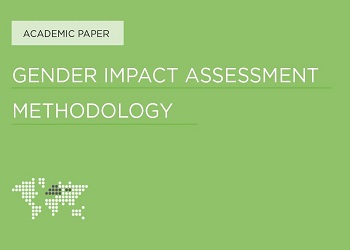- Details
The Gender Impact Assessment (GIA) of the programme Plant the Future was conducted by the ISET Policy Institute (ISET-PI) as part of its collaboration with UN Women within the scope of the project “Regulatory Impact Assessment and Gender Impact Assessment for Women’s Economic Empowerment in Georgia”. This study represents an ex-ante GIA of the programme Plant the Future initiated by the Ministry of Environmental Protection and Agriculture of Georgia (MEPA) and implemented by the Ministry’s Rural Development Agency (RDA). The programme was introduced by the MEPA in 2015 and runs in almost every region of the country. Plant the Future supports the development of nursery and perennial gardens in the regions and currently offers financial support/subsidies for three separate components: (1) perennial gardens; (2) nursery gardens; and (3) the installation of anti-hail systems and/or the arrangement of wells or borehole pumping stations.
- Details
The gender impact assessment (GIA) is an equality tool that helps assess the gendered impact of different policies, programmes and services. It provides technical knowledge to enhance public sector organizations, think tanks and international development organizations to create gender-responsive and equitable programmes. It is a useful evidence-based policymaking tool that aims to achieve the best possible outcome from incorporating a gender dimension into the governance process and increase its efficiency.
This methodology clarifies the concepts underlying the GIA and provides guidelines for its practical use. It is designed to assist government officials, policymakers, practitioners, trainers and the international donor community, as well as others interested in this dynamic and evolving area of incorporating gender issues while planning, implementing, monitoring and/or evaluating any policy, law or draft law, activity or programme. More specifically, this methodology can serve as a reference point to empower policymakers to carry out a GIA of all policies, draft laws, programmes and activities to ensure that prior to their implementation, a thorough analysis is conducted on the potential effects on both women and men, girls and boys respectively.


